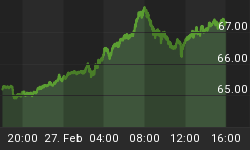Witch Hunt Review
As I noted earlier today China Starts Witch Hunt for Those Obstructing Government Efforts to Prop Up Stocks.
Public Confession
It took less than a day for the a victim of the witch hunt to be rounded up for public display. The Financial Times reports China Reporter Confesses to Stoking Market 'Panic and Disorder'.
A leading journalist at one of China's top financial publications has admitted to causing "panic and disorder" in the stock market, in a public confession carried on state television.
The detention of Wang Xiaolu, a reporter for Caijing magazine, comes amid a broad crackdown on the role of the media in the slump in China's stock market, which is down about 40 per cent from its June 12 peak. Nearly 200 people have been punished for online rumour-mongering, state news agency Xinhua reported at the weekend.
"I shouldn't have released a report with a major negative impact on the market at such a sensitive time. I shouldn't do that just to catch attention which has caused the country and its investors such a big loss. I regret . . . [it and am] willing to confess my crime," [said Xiaolu]
When the market turmoil began in June, Beijing imposed restrictions on media reporting of the stock market. The independent China Digital Times, which monitors internet censorship in the country, said in June media were told to avoid stoking panic.
"Do not conduct in-depth analysis, and do not speculate on or assess the direction of the market," it reported an official directive as saying. "Do not exaggerate panic or sadness. Do not use emotionally charged words such as 'slump', 'spike' or 'collapse'."
Word Police US Style
With thanks to reader Mark for the link, Campus Reform reports that Professors Threaten Bad Grades for Saying Oppressive Words.
Multiple professors at Washington State University have explicitly told students their grades will suffer if they use terms such as "illegal alien," "male," and "female," or if they fail to "defer" to non-white students.
According to the syllabus for Selena Lester Breikss' "Women & Popular Culture" class, students risk a failing grade if they use any common descriptors that Breikss considers "oppressive and hateful language."
Much like in Selena Breikss's classroom, students taking Professor Rebecca Fowler's "Introduction to Comparative Ethnic Studies" course will see their grades suffer if they use the term "illegal alien" in their assigned writing.
According to her syllabus, students will lose one point every time they use the words "illegal alien" or "illegals" rather than the preferred terms of "'undocumented' migrants/immigrants/persons."
White students in Professor John Streamas's "Introduction to Multicultural Literature" class, are expected to "defer" to non-white students, among other community guidelines, if they want "to do well in this class."
Streamas previously generated controversy by calling a student a "white sh*tbag" and declared that WSU should stand for "White Supremacist University".
It is notable that one of the syllabus provisions warns: 'The subject material of this class is sensitive and controversial. Strive to keep an open mind.'
How are students supposed to approach these sensitive and controversial materials at all, let alone to keep an open mind, if they have to fear that a misconstrued statement, or one that unreasonably offends a classmate will lead to a grade reduction or even removal from class?
Banned Words and Phrases Comparison

Repercussions China vs. US
In China, use of banned words and phrases, or even an analytical report that says a company is struggling will land you in prison or worse.
It is illegal to speak the truth in China. Heck, it's even illegal to pursue the truth. China has banned in-depth analysis!
Chinese analysts are probably scrambling right now to make sure they do not hint that sales of a company are likely to decline, be worse than expected, less than last quarter, or anything similar.
Those who make a mistake will find themselves on public display with a forced confession. Failure to confess when asked is likely to mean a death sentence or prison for life.
At Washington State University, use of politically incorrect terms will simply affect your grade. Moreover, students have the upfront option to not take inane classes in the first place.
Rest assured, classes in "multicultural literature", and "Women & Popular Culture" are not a likely foundation for a well-paying job.















